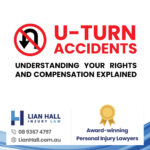If you have a permanent impairment after a work accident, the workers compensation insurance company will often offer to settle your claim by paying a lump sum as compensation. But how do you know if the offer that you get is fair?
Do you have a common-law claim or not?
Usually, common law settlements are bigger than redemption settlements so the first question to ask is whether you can sue your employer for lump sum compensation (a common-law claim), or, must you assess your lump sum compensation against your ongoing workers compensation entitlements (a workers compensation redemption). It is important to remember that if you have a workers compensation claim you do not automatically have the right to sue your employer for common law damages. To sue your employer you must:
- Have a whole of person impairment (WPI) assessed at above 15% or 25%; and
- Register your decision to sue at WorkCover; and
- Be in a position to prove that your accident was caused by the fault of your employer; and
- Be within the Limitations period, usually 3 years from the date of the accident.
Before considering a settlement offer you should consider whether you can answer “yes” to all of these. This is an important decision but the answer may be complex. So before you make that decision you should get legal advice.
Has your injury stabilized?
Whether you make a common law claim or you settle your claim by way of redemption, your Whole Person Impairment is a critical consideration. But you cannot (other than in exceptional circumstances) have your WPI assessed until your injury has stabilised. In workers compensation in Perth, we ask whether you have reached ‘maximal medical improvement. What this means is that you have had treatment and that any additional treatment is not likely to change your degree of impairment. That is not to say that you don’t need more treatment. You may well need more treatment but maximal medical improvement is simply saying that that treatment won’t improve your degree of impairment ie: your injury has stabilised.
Of course, the other important reason for only assessing an offer after your injury has stabilized is so that your future treatment costs can be fairly assessed.
Assessment of Whole of Person Impairment (‘WPI’)
Once your injury has stabilized your Lawyer assesses your impairment by sending you to a doctor certified by WorkCover as having the qualifications to make WPI assessments. The doctor will consult the American Medical Association Guides to the Evaluation of Permanent Impairment, known to Perth lawyers as the AMA Guides. The AMA guides divide the body into different parts and the AMA guide gives those different parts different whole body weightings. For example, a shoulder is given a higher rating than a thumb, and an eye is given a higher rating than a toe. Your doctor measures your restriction and then uses the AMA tables to convert your impairment to a whole-person impairment percentage.
How do I use my WPI to know whether the settlement offer is fair or not?
If your WPI is more than 15% or 25% then you may be able to sue your employer. This is an important decision and you should get legal advice before making that decision.
But if you have decided to not sue your employer then you can use your WPI to calculate a lump sum payment. There is a reasonably simple way of calculating that lump sum: you will need to apply your WPI % against the item number on the table published for the year of your accident. This is known as the Second Schedule component. If you call your lawyer they will be able to guide you through this calculation. In addition to the Second Schedule component, you may also be able to add a claim for future weekly wages, future treatment, rehabilitation expenses, and travel costs. Your lawyer will do these calculations and you can then compare your calculations against the offer that the insurance company has made.










